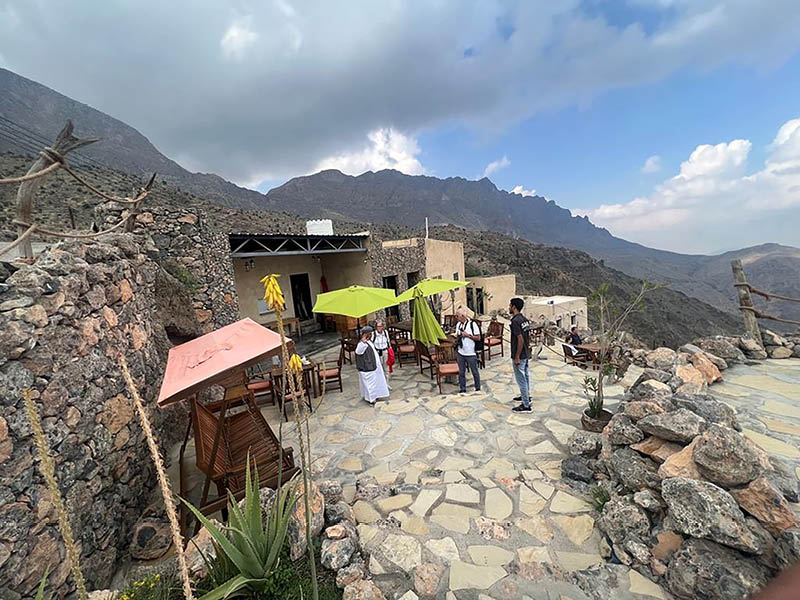Muscat – With 153 licensed eco-lodges by the end of 2024, the Sultanate's commitment to sustainable tourism continues to grow. These eco-friendly accommodations, spread across the governorates, are central to Oman Vision 2040's focus on environmental sustainability, community-led growth and quality tourism development.
The eco-lodges – or green inns – initiative supports environmental goals while supporting the local economy. Tourists are offered an authentic experience of Oman's natural beauty and cultural heritage, contributing to the preservation of both. Governorates such as South Batinah and Dhahirah, which have the most eco-lodges, are becoming increasingly popular with eco-conscious travelers drawn to Oman's rural landscapes and responsible tourism practices.
Highlighting the increasing popularity of eco-lodges, Ahmed bin Khamis al Saadi, director of the Investor Services Department at the Ministry of Heritage and Tourism (MHT), said: “These establishments are now preferred by tourists seeking sustainable accommodation.” They offer also valuable economic opportunities, particularly in rural areas.”
To encourage investment, MHT has reduced the license fee for eco-lodges to RO250 million for five years and is working with financial institutions to streamline the documentation process. New standards for eco-lodges are also being developed in collaboration with relevant authorities, focusing on environmentally friendly practices, sustainability measures and tourism activities.
Since launching eco-lodges in 2015, MHT has organized workshops across the country to promote sustainable tourism practices and encourage investment in eco, heritage and guesthouse projects. These efforts have raised awareness of the potential of green tourism, particularly in rural areas where the initiative has created jobs and boosted the local economy.
Visitors to eco-lodges enjoy an immersive experience and have the opportunity to sample traditional Omani cuisine, purchase handmade crafts and engage with local communities. This approach strengthens socio-economic ties while preserving Oman's cultural and environmental heritage.
Challenges such as urban sprawl and limited natural resources, including water scarcity, pose hurdles to the initiative's growth. However, the Ministry continues to address these issues through education and advocacy for sustainable tourism practices.
MHT also attaches great importance to the expansion of agricultural and rural tourism. Farmers are encouraged to invest in tourism projects that offer unique, environmentally friendly experiences with an emphasis on renewable resources and social responsibility. These efforts aim to diversify Oman's tourism sector while incorporating environmental objectives.
